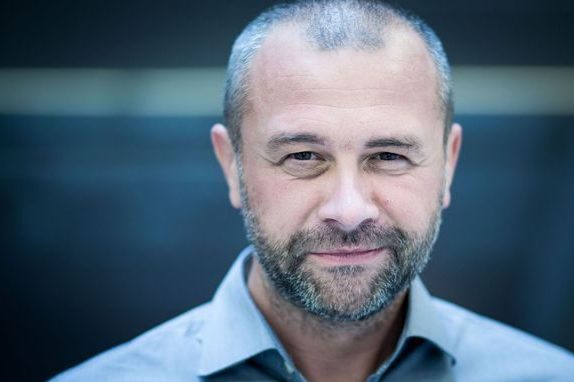
Blog: Uniting European fundraising for a stronger future
February 5, 2020
What could the European Commission’s plans to beef up regulations against money laundering & terrorism financing mean for charities?
March 4, 2020With a focus on quality, Save the Children International is growing its face-to-face fundraising programmes globally. Now, with the coronavirus affecting some national markets, Fundraising Europe interviews Elsbeth de Ridder, the charity’s global face-to-face fundraising manager about the strengths, challenges and opportunities for the channel.
Face-to-face has had its highs and lows over the years. Why is the channel so important to Save the Children?
We carry out a wide range of fundraising activities: DRTV, digital, direct mail and more, but face-to-face is the largest part of our individual giving programme globally. We run face-to-face in 24 nations and within those markets it generates between 60-100% (varying by market) of our individual giving volume of new monthly regular givers.
People see us on the street, at the door, in shopping centres. It’s a great way for us to build visibility and brand awareness whilst bringing in the majority of volume for new monthly regular givers. It gives us the opportunity to get out there and talk to potential supporters, answering their questions and helping to build trust. For some, it’s their first point of direct contact with the charity. And for those that have seen our campaigns online or on TV, it’s a strong secondary touchpoint, giving them the chance to talk it through before they donate.
We run large face-to-face operations in the US, Italy, Netherlands, Germany, Spain, South Korea, and Indonesia, but also in many other markets globally. There are some subtleties in each of the markets, but the same principle applies across the board; successful face-to-face fundraising is all about connecting with quality donors.
Has the spread of the coronavirus (Covid19) had any impact on your face-to-face programmes?
The coronavirus has had an impact, leading us to temporarily and partially suspend parts of our activities in South Korea, Japan and Northern Italy. The safety of our staff and fundraising teams is our top priority. So, this has meant that we’ve spent quite a bit of time over the past couple of weeks looking at what it means for our staff within those areas and beyond.
It’s difficult to plan campaigns with the virus impacting some of our markets, but we’re doing what we can to diminish the impact by reducing the length of shifts, operating in smaller teams, and pulling out of large-scale events or private sites when we need to.
What’s critical is that we’re not working in isolation. There is a close and strong international face-to-face fundraising community that encompasses many of the most active INGOs in the field. Together, we discussed which markets have been most heavily affected and shared ideas for how best to handle the situation going forward.
This collaboration is so important, not only for responding to issues like this but for strengthening the market as a whole. Face to face has had a bad name in the past and we all know how important it is to protect this vital income stream. We have to fundraise well.
There has been a real shift across the sector in recent years, moving the focus on from volume to quality of donors. But F2F could still do better; with better channel management based on attrition data, and a focus on better quality of donors, combined with the large volume the channel brings in, as well as collaboration across the industry, we can improve the results of the channel.
What can the sector do to keep supporters on board?
Face-to-face is a channel that traditionally suffers from high attrition, and this is partly down to the nature of the channel, but also how charities and agencies manage those supporter relationships. There needs to be greater emphasis on finding the right donors at the point of sign up and to looking after them.
First of all, we need to recognise that this is the charity’s and agencies’ shared responsibility. We can’t just blame agencies when things go wrong. It’s also down to us to give them the right support and leadership from the start and to work hand in hand, making it clear that quality donors are what we’re looking for.
This means choosing the right partners, putting appropriate incentive schemes in place that reward the acquisition of donors that stay with the organisation and to work together toward acquiring long term, sustainable donors.
We need to recognise that it’s not always easy to achieve all this and the more we can work to understand and anticipate the challenges with face-to-face, to focus on quality recruitment and to support the agencies we work with and motivate their teams, the better results we’re likely to get.
Internal buy-in is critical in all this too and that starts at the very top. Senior leaders and board members need to realise the opportunities and full potential of the channel and fully support it. And, although this sounds obvious, an experienced face-to-face manager is key. They will understand the importance of looking at your data continually beyond the point of sign-up and exploring what is being done to engage and build the relationship.
What measures do you take at Save the Children to ensure the focus remains on attracting ‘quality’ donors?
Ultimately, we know what supporters we are looking for; we want those that are going to stay with us. Older donors will often ask more questions, asking about where their money goes and how it will be spent. But if they get the answers they are looking for, they stay with us and this is who we are looking for. So, we aim to put donor age and attrition into our performance targets and into our contracts with fundraisers, suppliers and agencies. We need them to understand how important this is to us.
It’s also really important to have fun with face-to-face. We run a Christmas campaign across all our global markets as a final burst of activity to get quality donors in. The campaign message might differ depending on the specific market, but it’s a great opportunity for all our teams to work together and to feel part of a truly international movement. We have a WhatsApp group and Facebook page, global KPIs set at the start and a global countdown, with weekly updates, all of which help to build excitement and we get some great feedback from our fundraisers and agency partners. What’s more, the fundraisers are really inspired by one another and we see the campaigns get more and more creative each year.
What do you think is next in store for face-to-face?
Face-to-face has had a bumpy ride over the years and our focus has to be on continuing to attract quality, sustainable donors that care about the cause, as well as thinking outside the box and being innovative. Working collaboratively with other charities and agency partners is vital if we are to continue to raise standards and build confidence in the channel.
Looking to the future, I would love to increase the potential of using face-to-face outreach in times of emergency. It is without doubt the quickest way to mobilise support, and there is opportunity for a more coordinated approach to raising funds for humanitarian aid in times of crisis. It’s an exciting time for face-to-face.
Elsbeth de Ridder will be presenting her insights at the International Face2Face Fundraising Congress in Vienna (17-19 November 2020).
Elsbeth de Ridder
Born in Holland, Elsbeth de Ridder leads the global face-to-face fundraising programme for Save the Children International, supporting and advising F2F teams across 24 national markets. Currently based in Spain, she has led F2F fundraising programmes across the world, working with World Vision Australia to World Vision UK and, later, with Save the Children UK. Prior to joining the international development sector, she volunteered in South Africa and, before that, had a successful 10-year career as a Sales Director in commerce.




